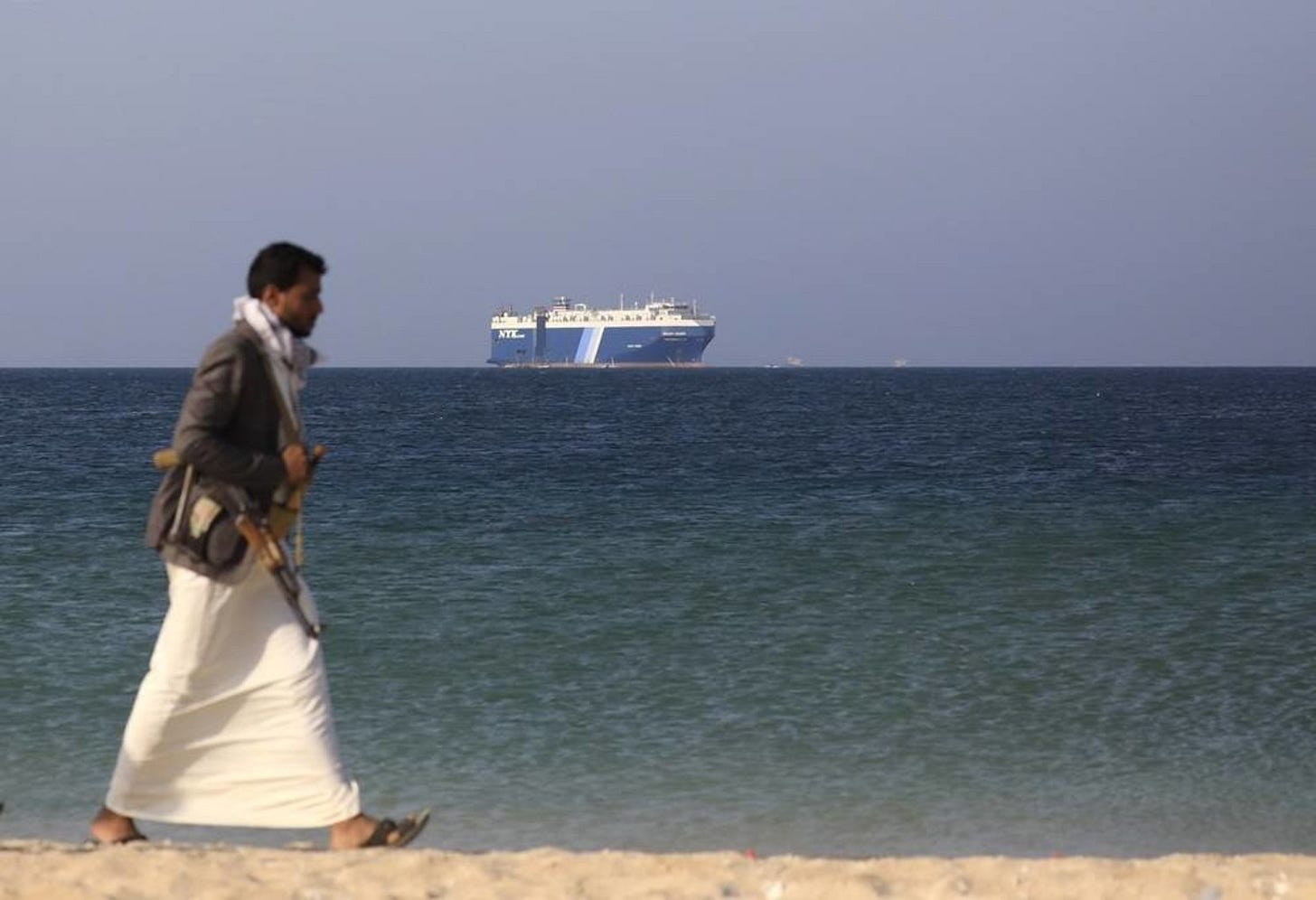What happens when America no longer protects the sea lanes?
As the world moves into the multipolar era, all eyes are on the Red Sea.

For several decades, global trade has remained robust and free of major interference. Under the post Cold War unipolar order of Pax Americana, the United States has served as the de facto guarantor of open sea lanes, embracing the duty as an acceptable cost of responsibility for being the world’s hegemonic power.
However, as the world enters an increasingly multipolar geopolitical environment, the Pentagon’s priorities (at the direction of the White House) have shifted all over the place, seemingly forgoing this unwritten social contract in the process. Not so long ago, it was commonly understood that as long as the United States wanted to remain the geopolitical head honcho, the U.S. Navy must be structured both for command of the seas and the duty of keeping the sea lanes open. But today, The Biden Administration wants to have its World Police cake and eat it too, without committing to maintaining the necessary presence in the seas to keep order.
Now at the end of 2023, with many world powers witnessing an America in decline, we are seeing repeated nation state and militant challenges to the once-accepted idea that the seas should remain open and neutral, and that American forces should be responsible for upholding this mission.
The Houthi movement, an Iran-backed political and militant jihadist outfit that now controls the country of Yemen, has succeeded in causing a major disruption to international trade, doing so through their sophisticated attacks and hijackings of vessels moving through the Red Sea.
The Houthis are justifying these attacks by declaring that they are doing so in the name of supporting Hamas in its battle against Israeli forces. And their motto — "Allah Akbar, Death to America, Death to Israel, Curse the Jews, Victory to Islam” — seems to offer all the necessary political context to their motives. Nonetheless, there’s also macro ramifications for the Houthi gambit in the Red Sea.
By causing chaos in the Red Sea, the Houthis have disrupted trade through the Suez Canal, which serves as one of the world’s most important waterways for international trade.
Almost all major shipping firms have issued guidance to avoid the Red Sea while the Houthis maintain their aggressive posture. Ships are currently being rerouted to circumnavigate the African continent, at obvious great cost to the thin margins of these industrial powerhouses. As of Monday, shipping giants like BP, Maersk, Evergreen, and many others have ordered their vessels to avoid the Red Sea until further notice.
The Biden Administration is reportedly weighing its options, following a relentless campaign of Houthi attacks via the use of military drones, ballistic missiles, hijackings, and other disruptive measures.
There has yet to be any major shockwaves in energy markets, but that doesn’t mean they’re not coming. It’s also possible that this is because global markets are waiting to see how the Biden Administration responds. Some have suggested that this could be indicative of an emerging recession, as the world is witnessing a reduced demand for energy resources, despite OPEC cuts to production.
As the world continues moving into a multipolar era of potentially cordoned off power centers and an unknown future state of affairs in the seas, air, and space, all eyes are on how the United States military responds to the ongoing disruptions in the Red Sea.




Well, the US Navy needs to figure out what pronouns to use first.
Then, will they have time for their drag queens to perform on the flight deck?
Decisions. Decisions.
Well first thing, we need to have a meeting and discuss our feelings about the topic. Perhaps a strongly worded letter would do the trick? Then maybe a DEI session or two about how not all Houthis can be judged based on "Allah Akbar, Death to America, Death to Israel, Curse the Jews, Victory to Islam” -- after all, this is really the fault of the white man anyway.